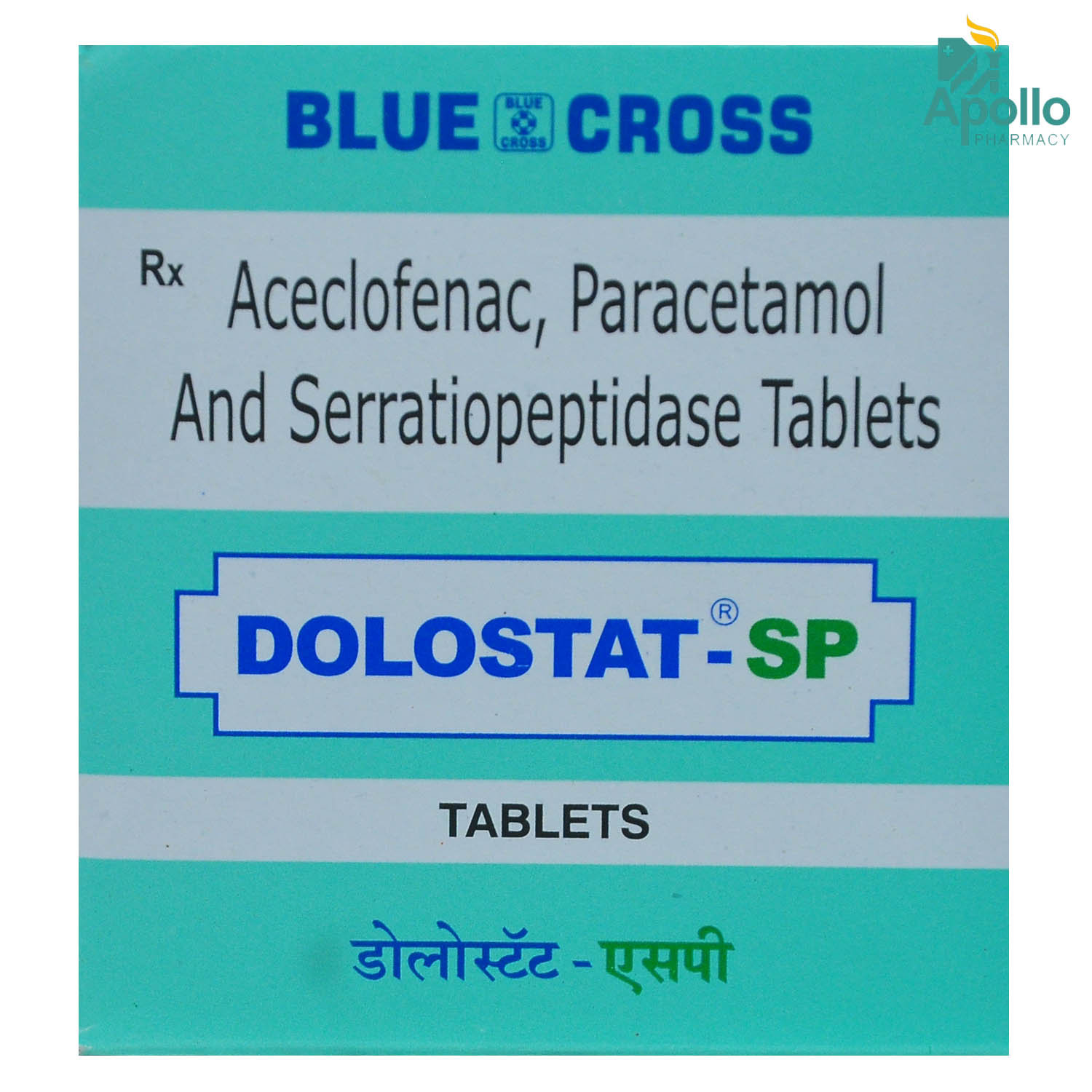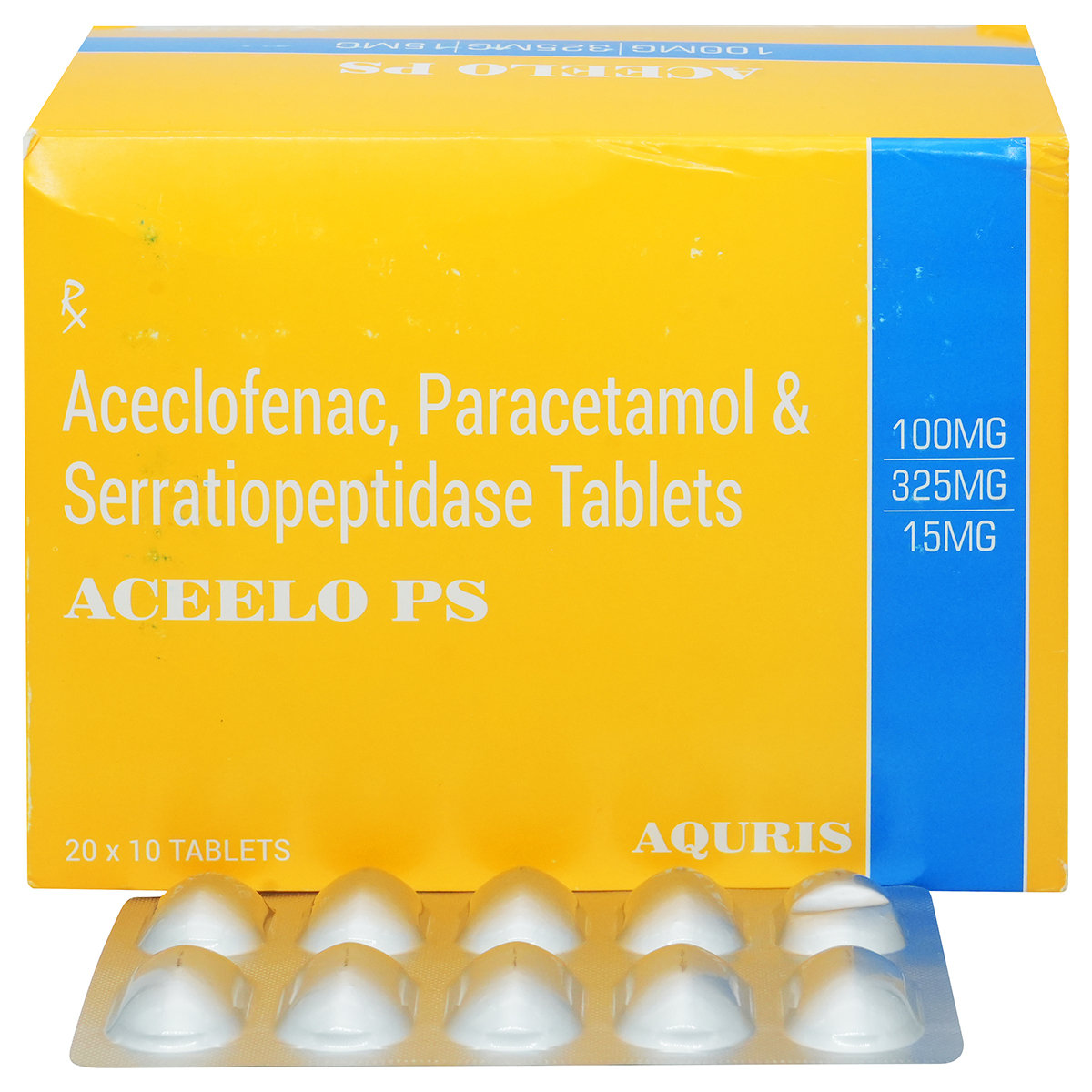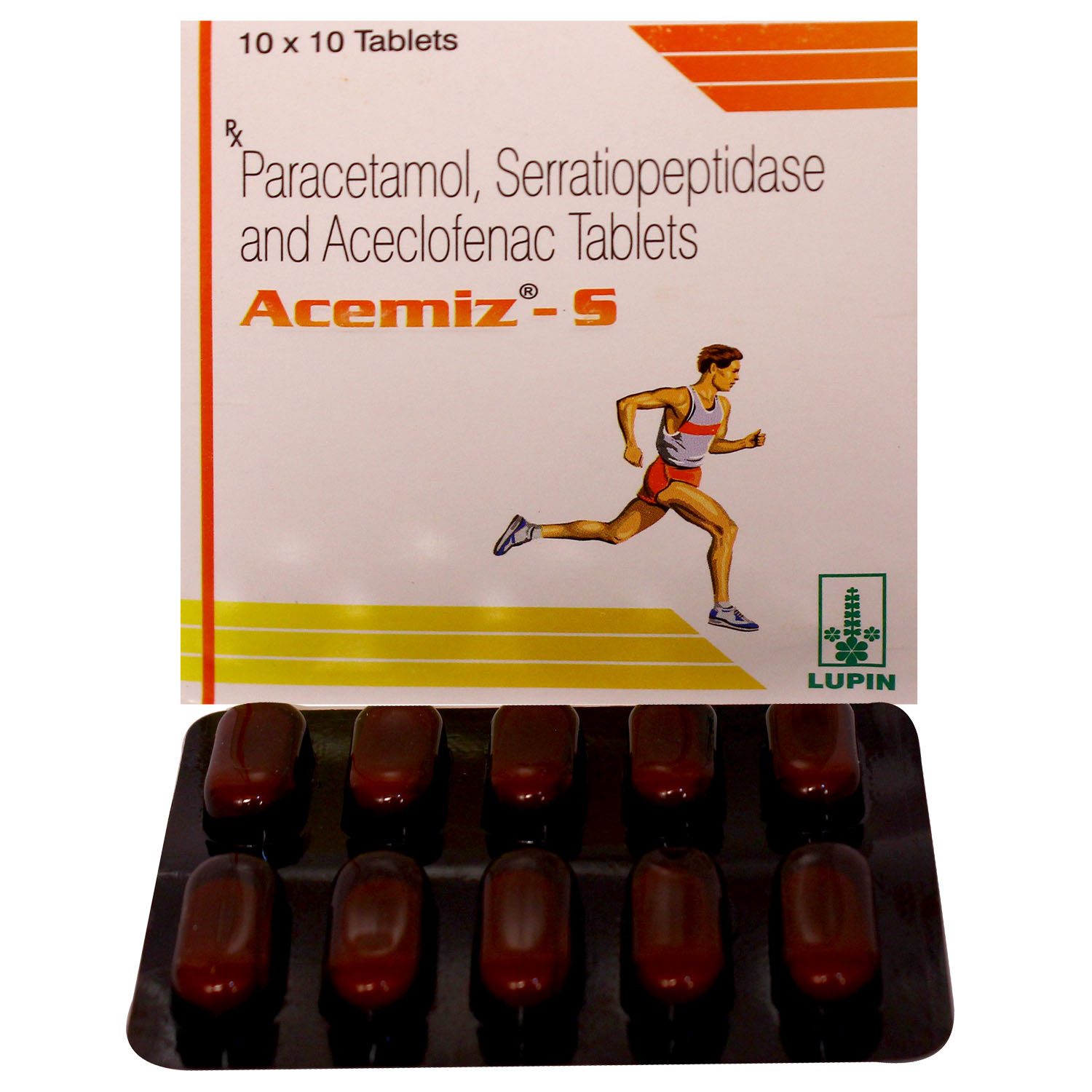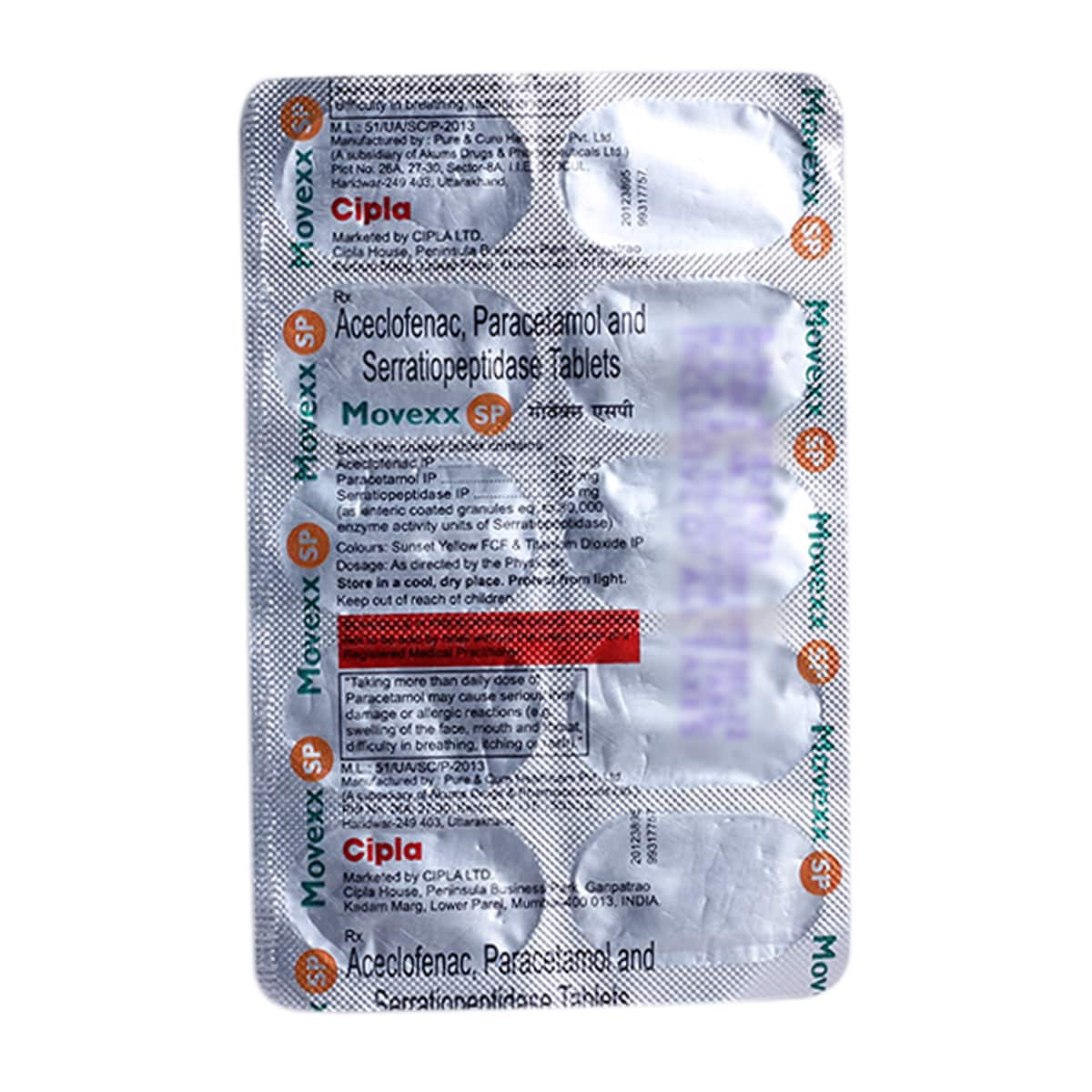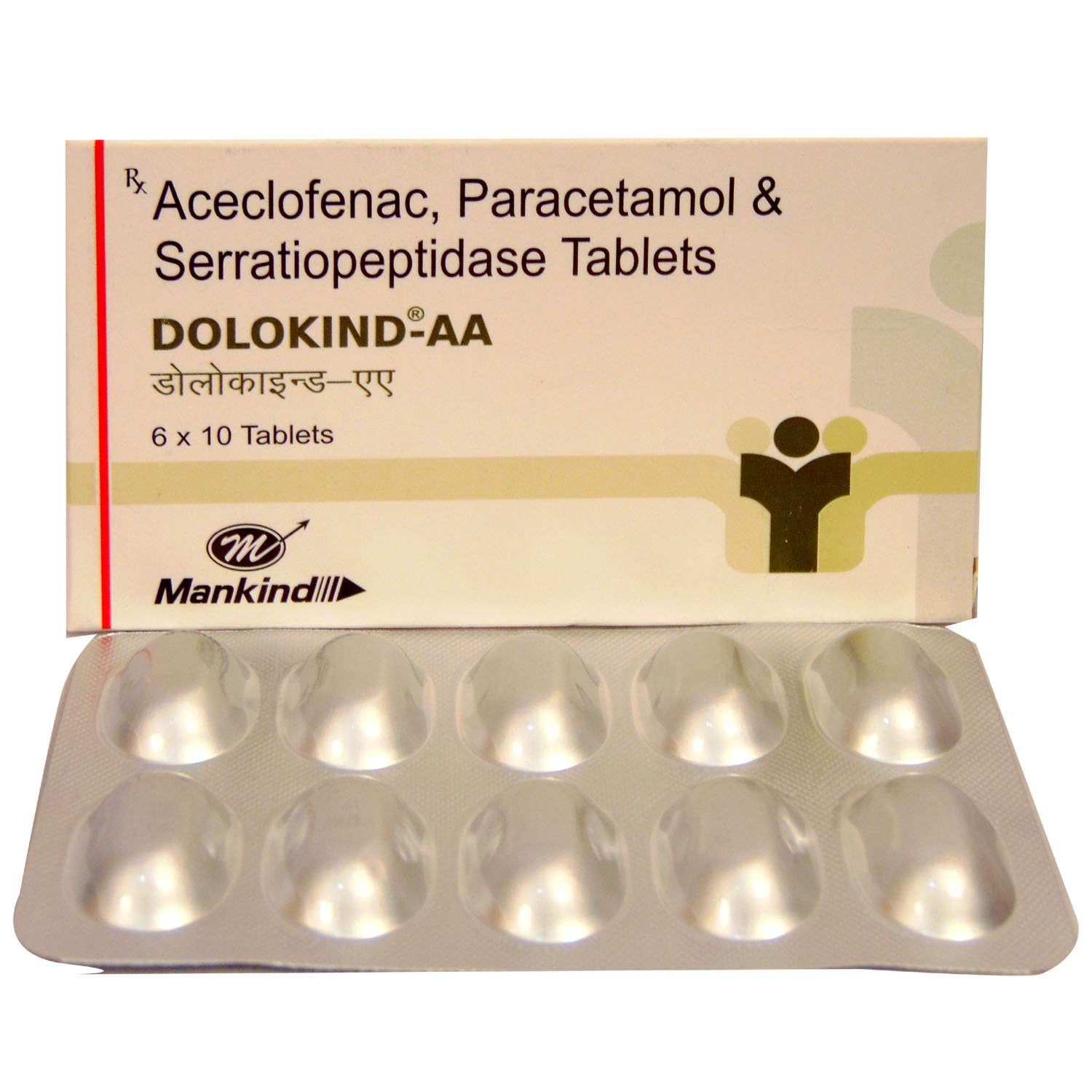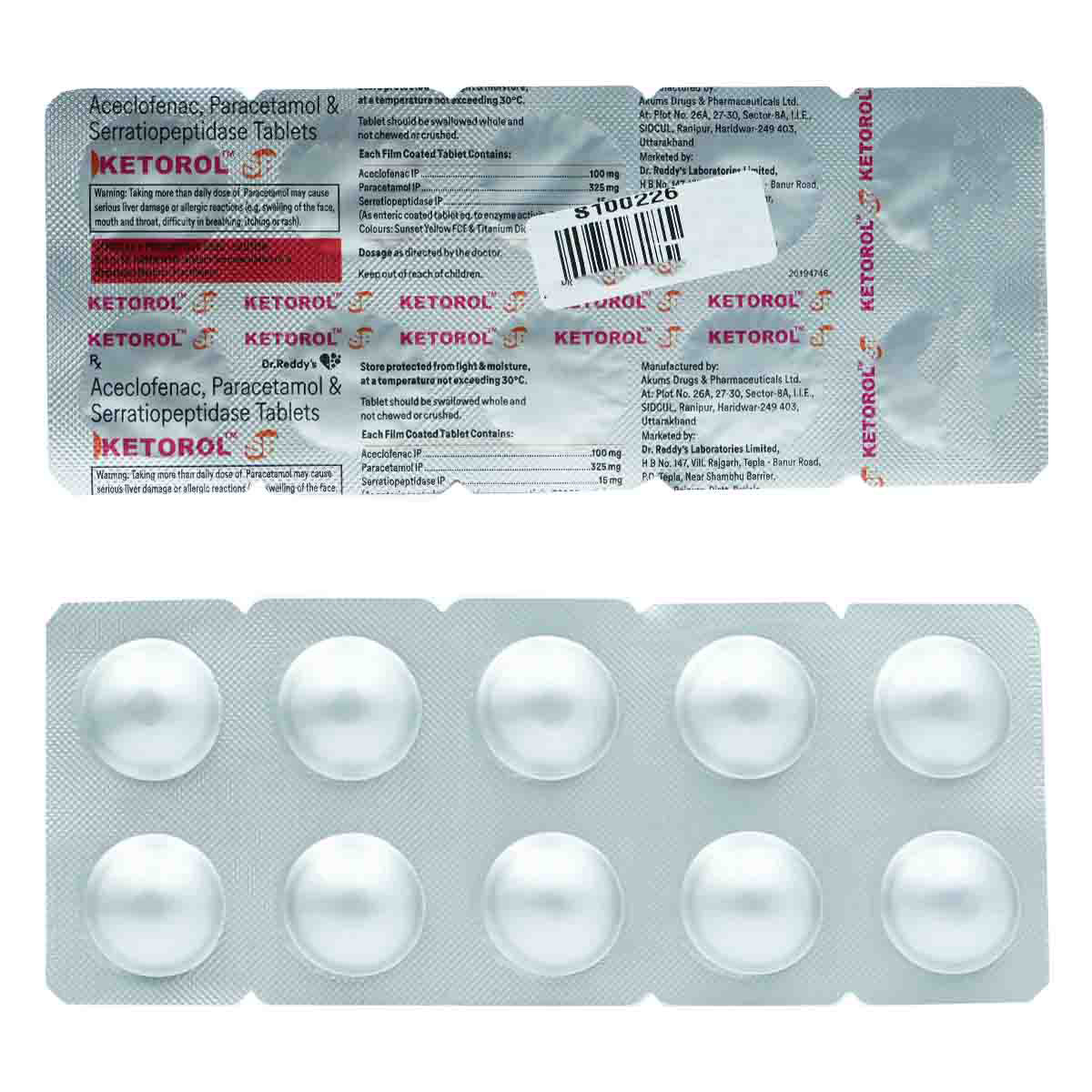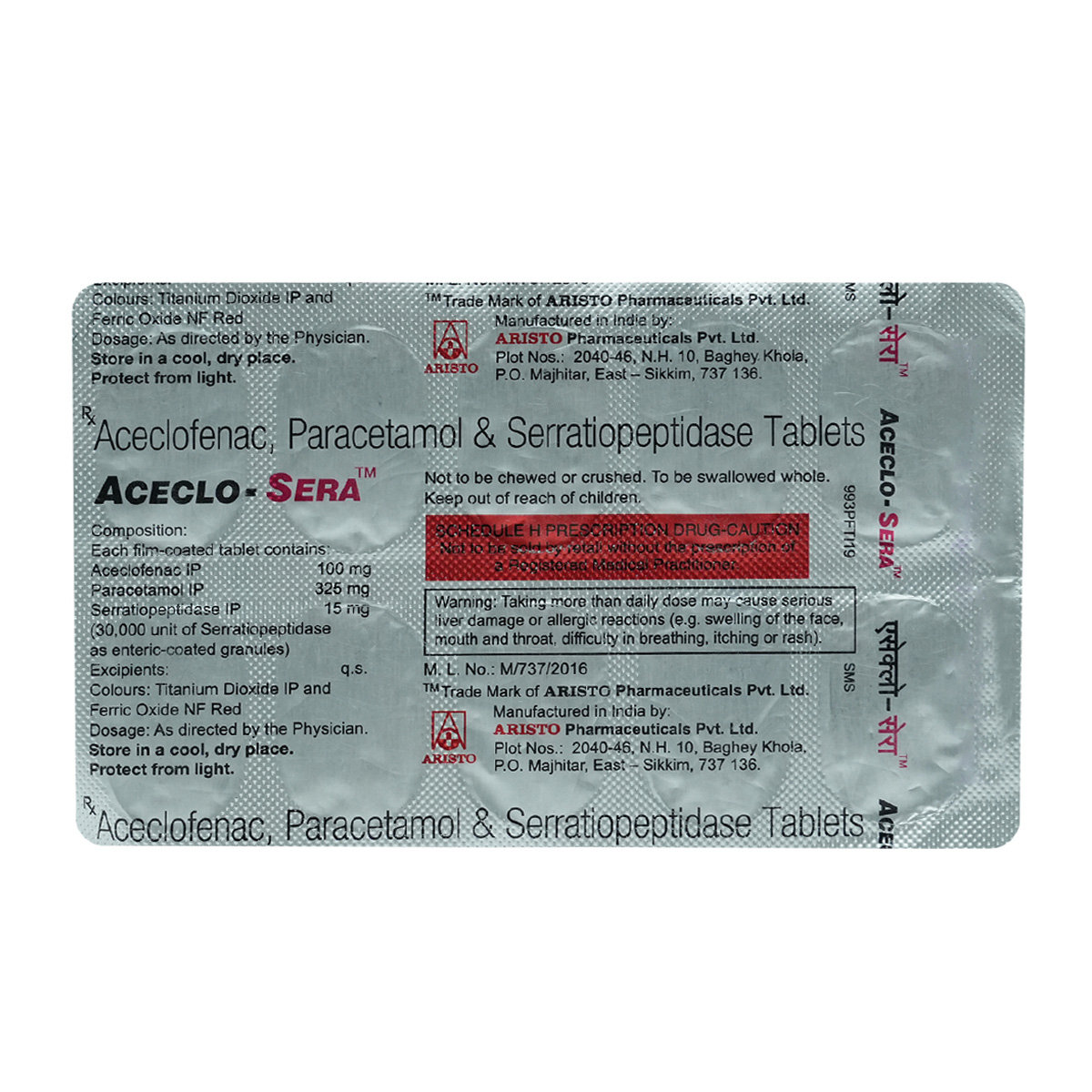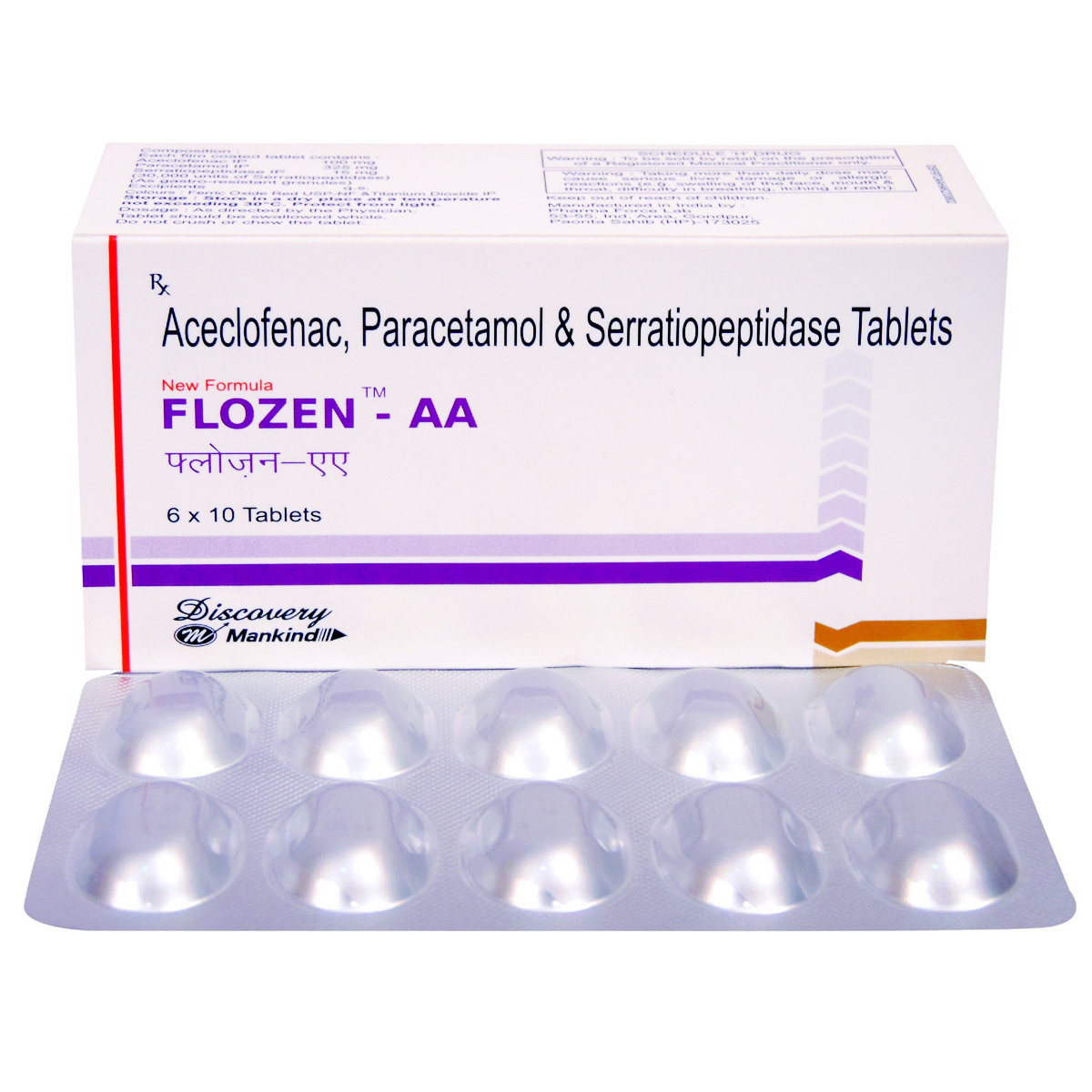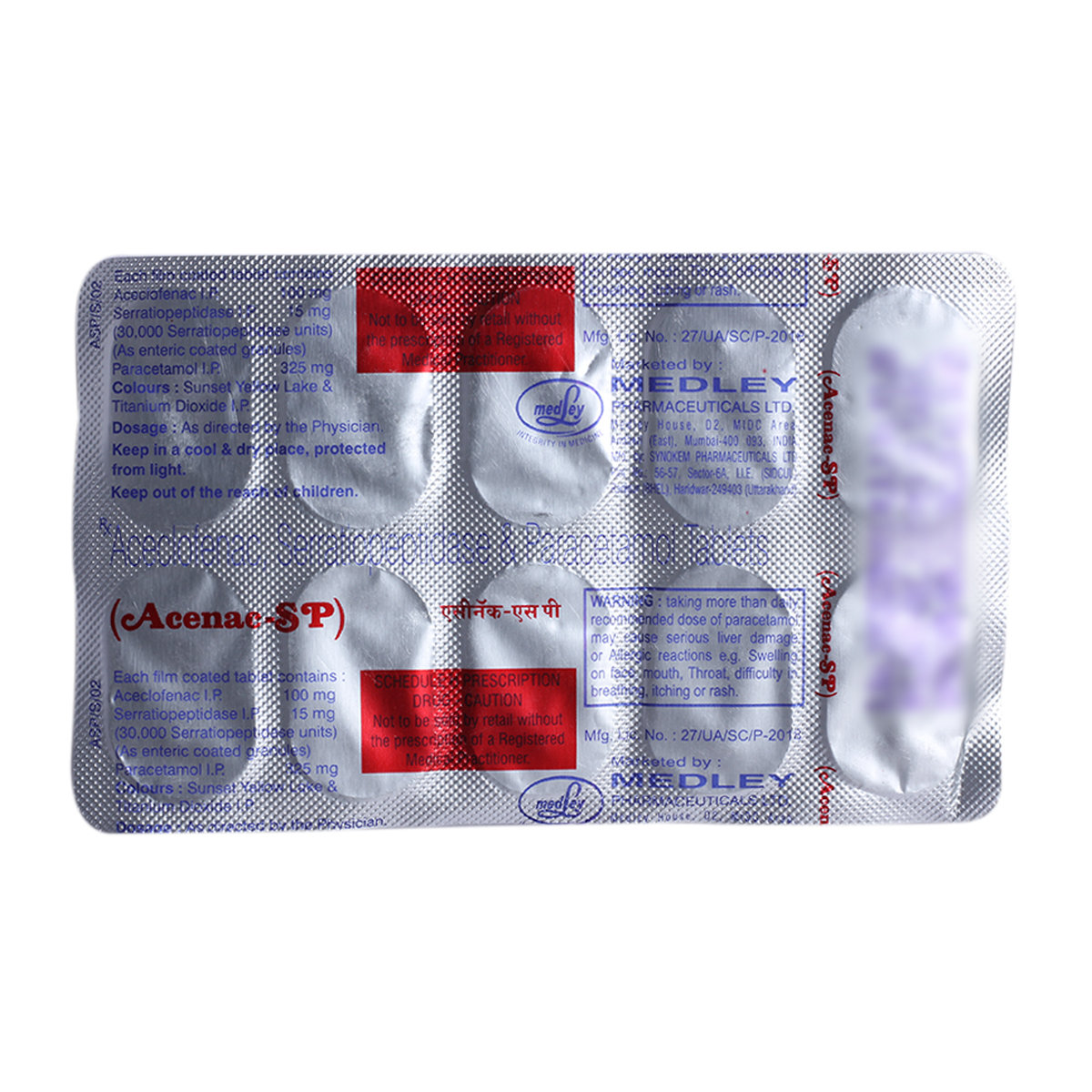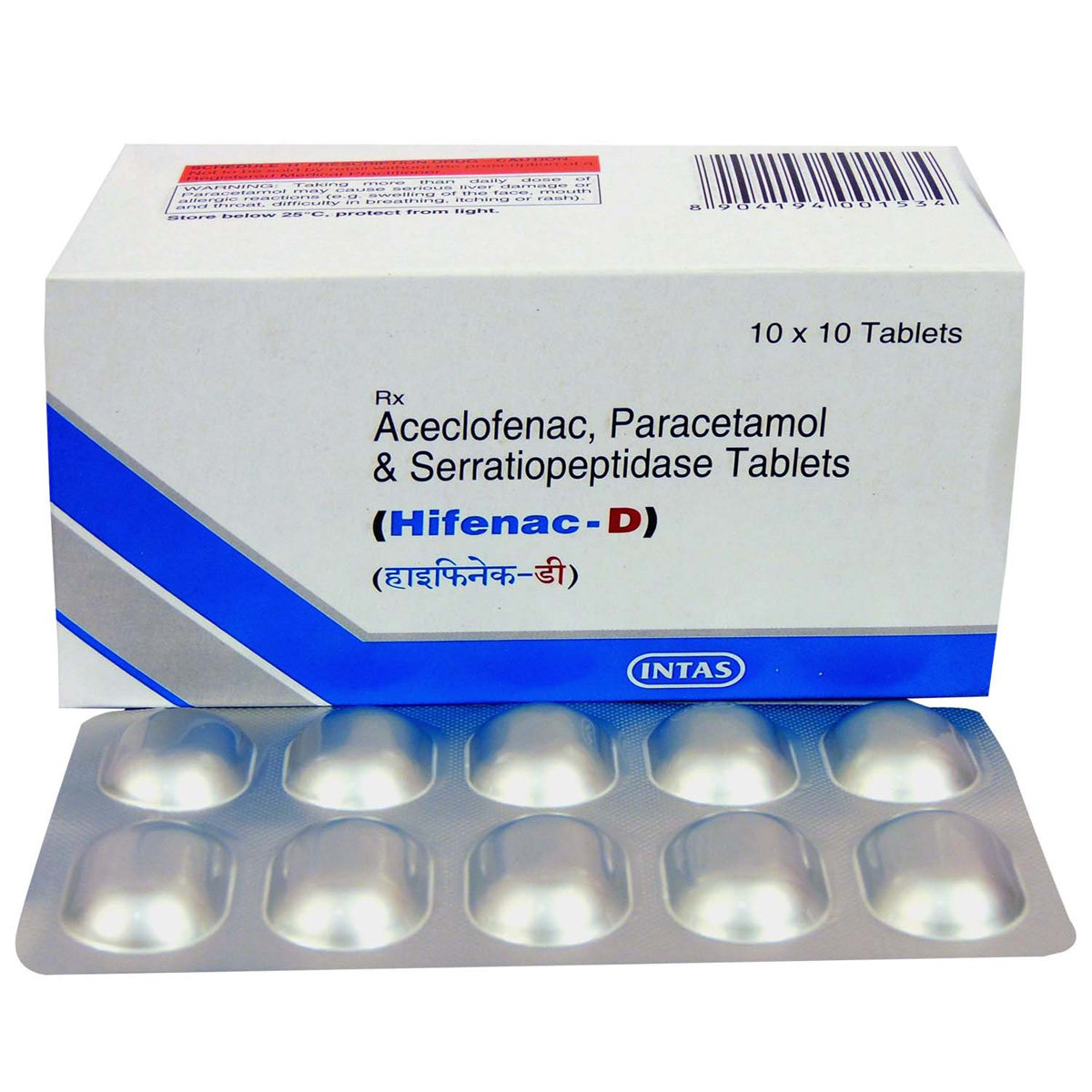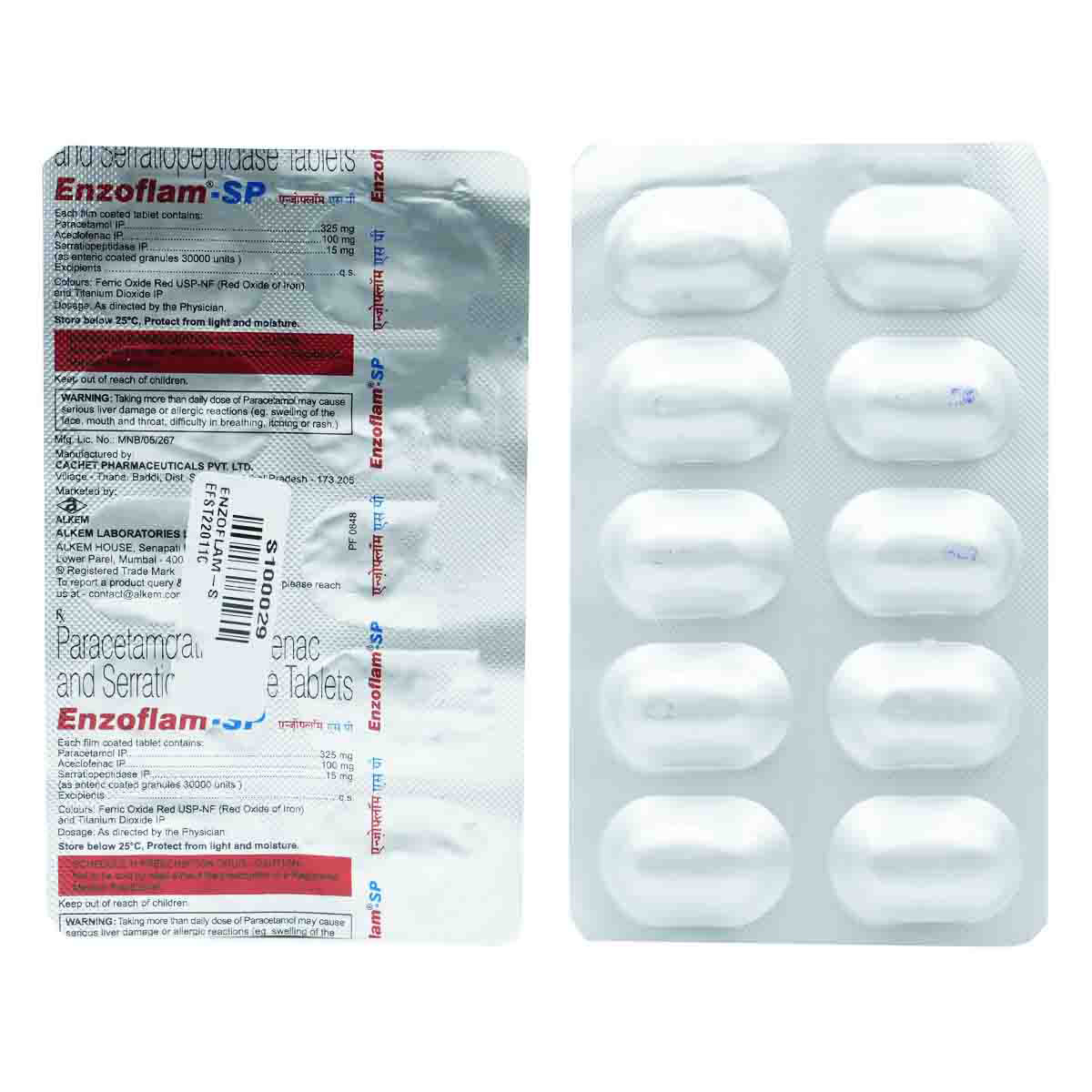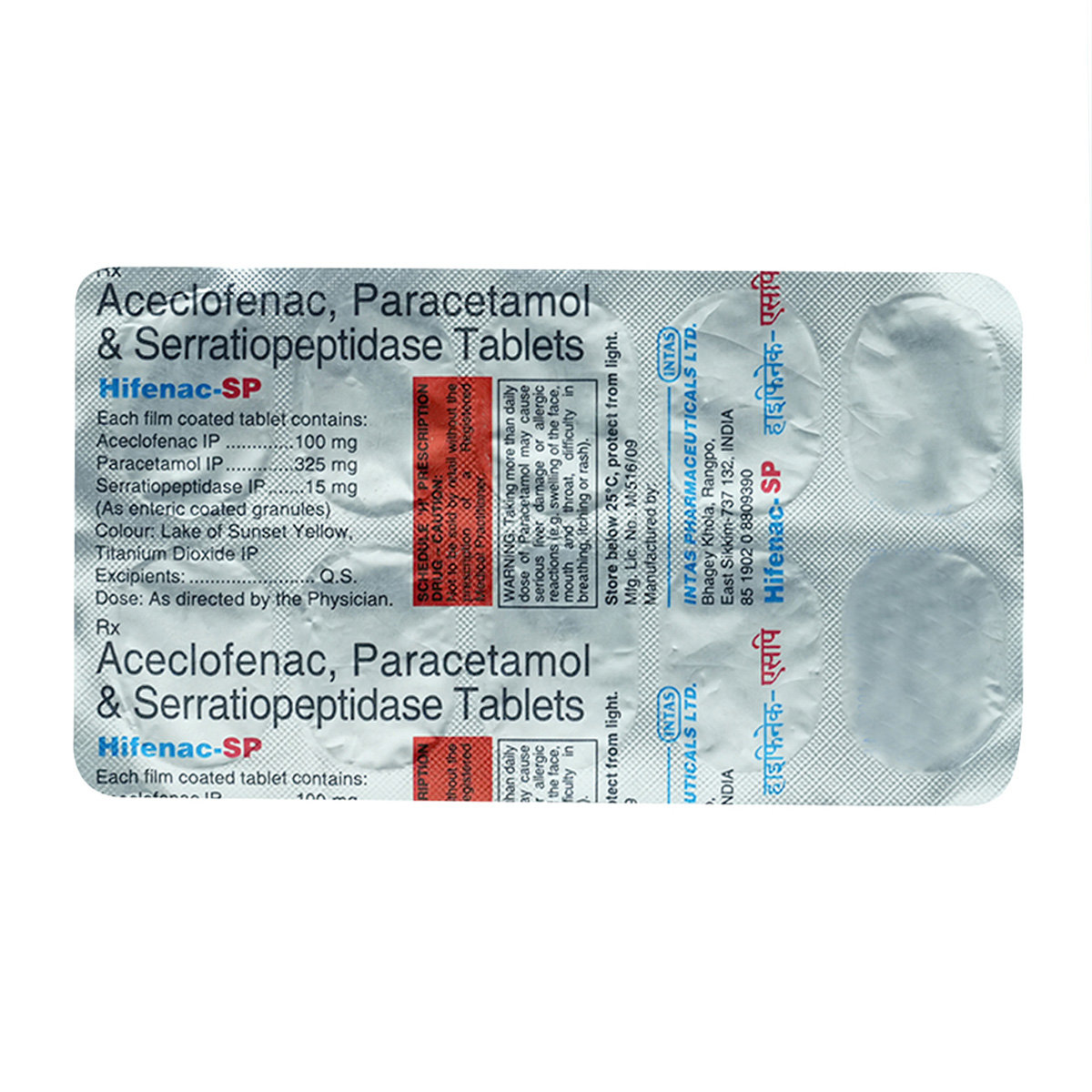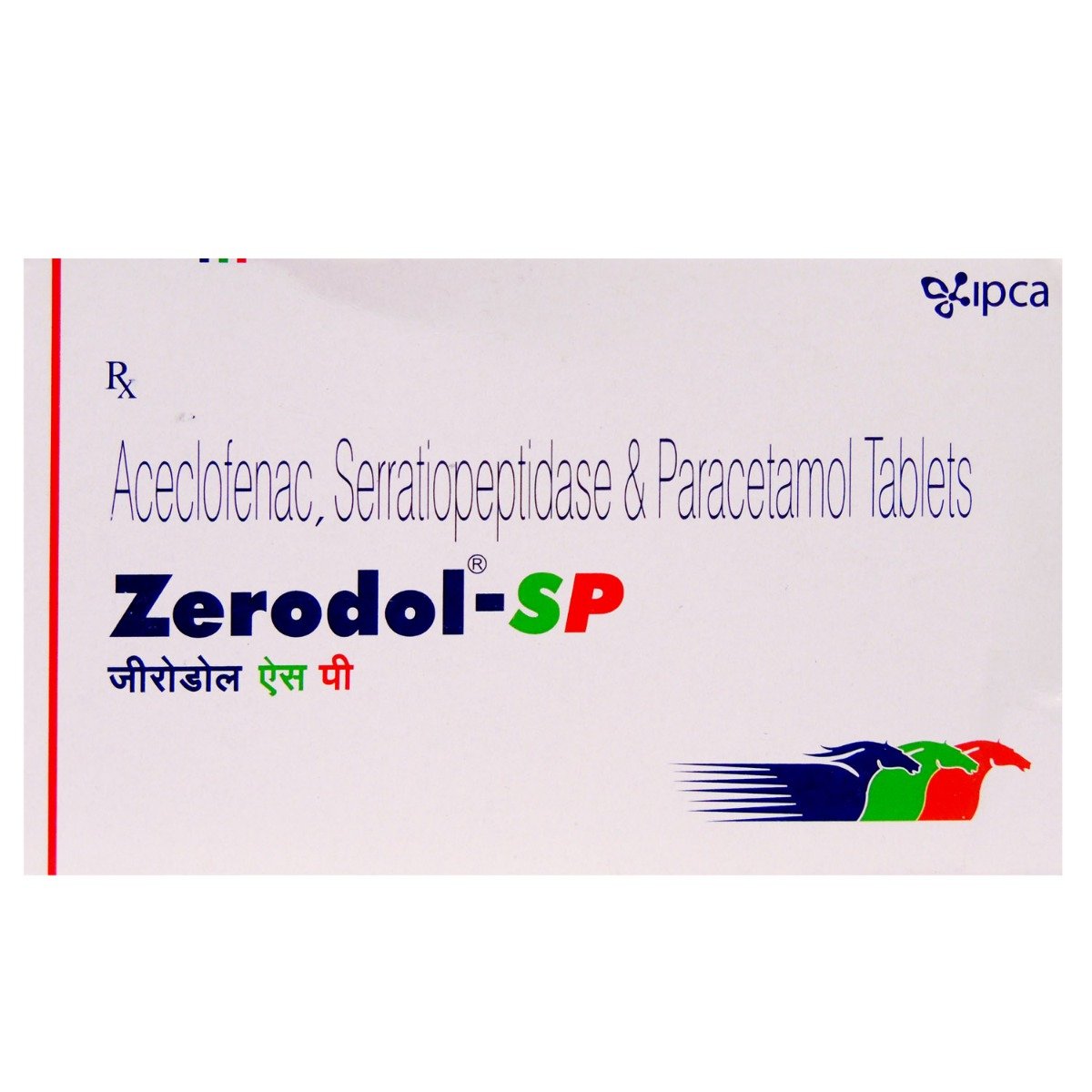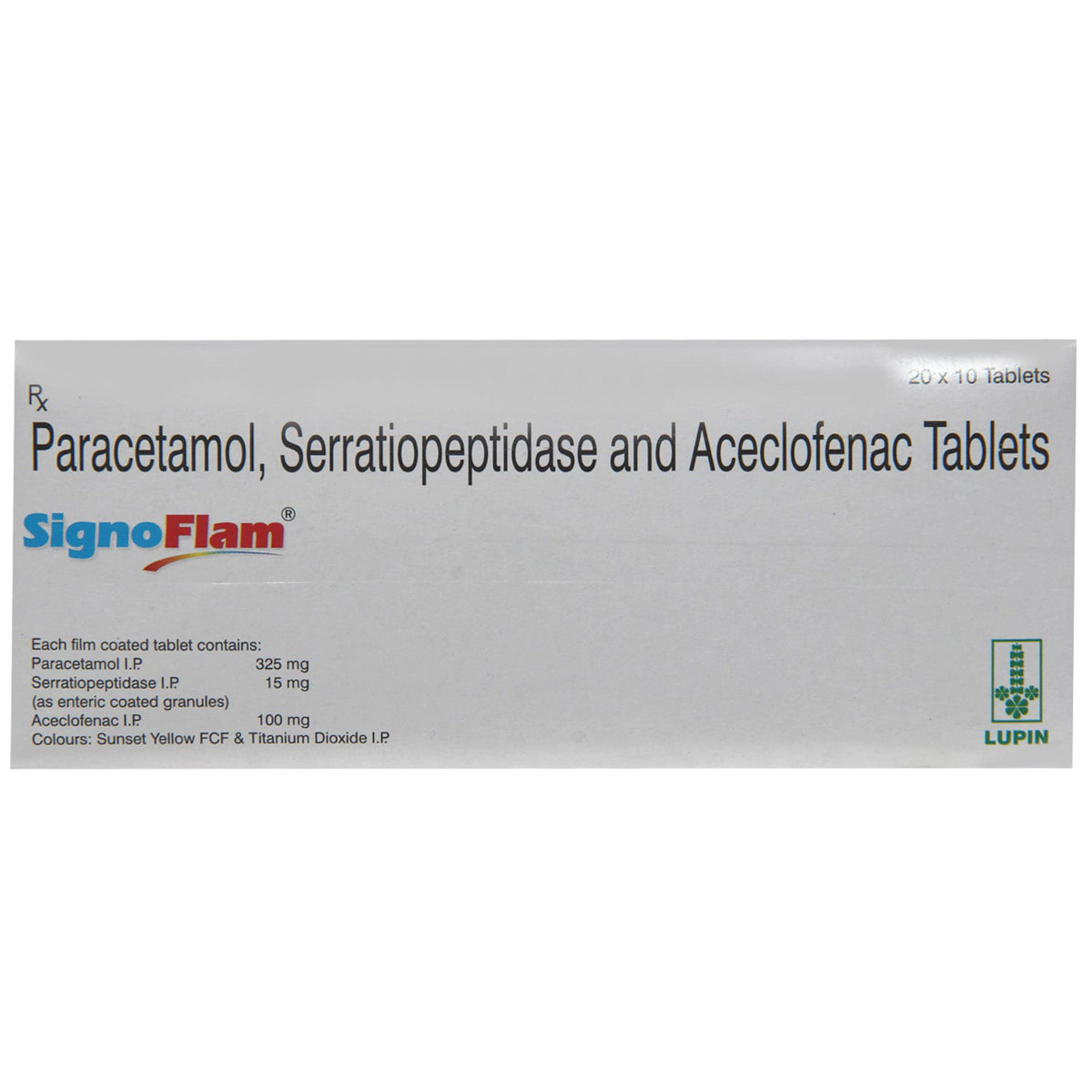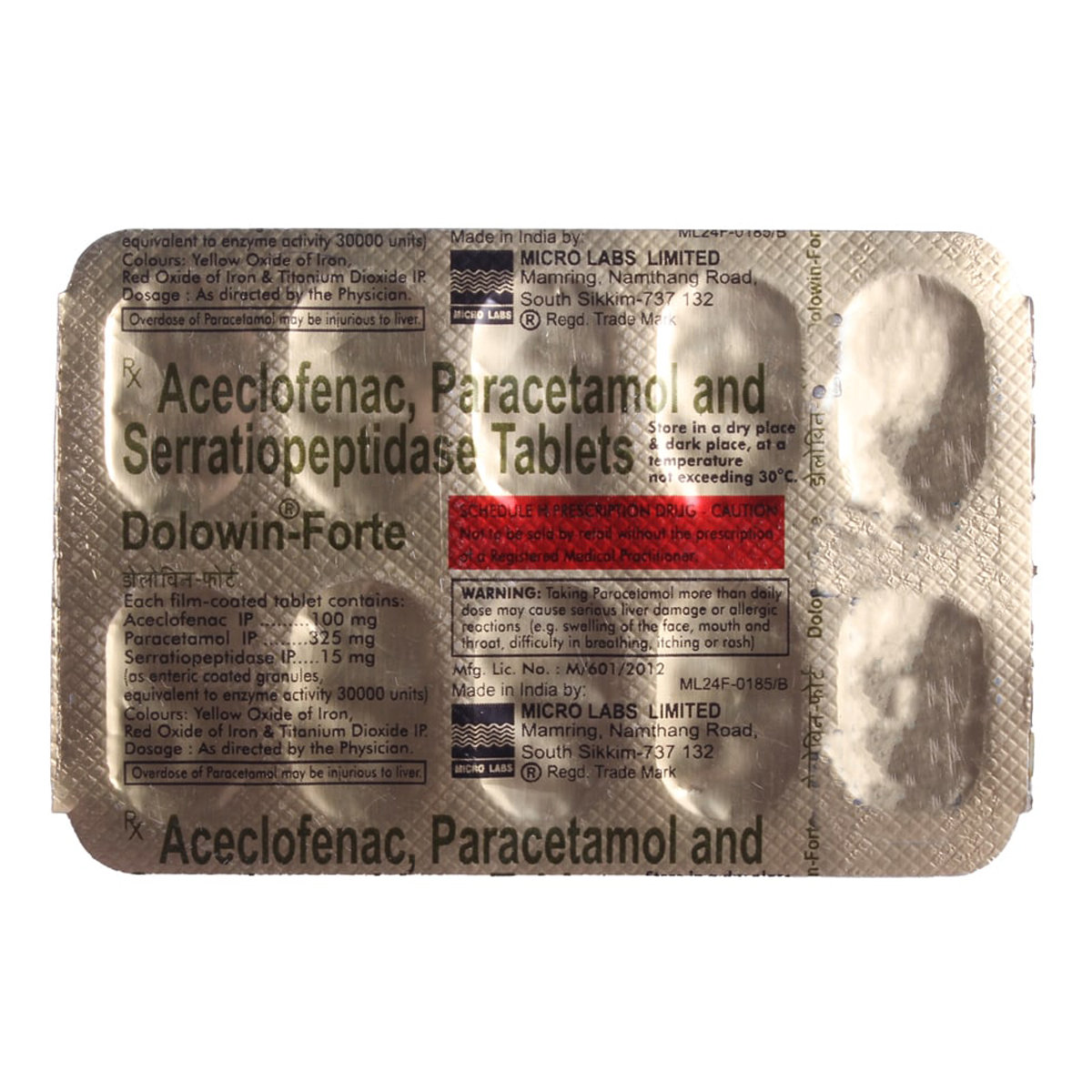- Home
- Angimed SP Tablet
Angimed SP Tablet Substitute
Angimed SP Tablet Substitute
Medicine Composition:
ACECLOFENAC-100MG + PARACETAMOL-325MG + SERRATIOPEPTIDASE-15MGAll Substitutes & Brand Comparisons
RX
Dolostat-SP Tablet 10's
Blue Cross Laboratories Pvt Ltd
₹55
(₹4.95 per unit)
45% CHEAPERRX
Aceelo PS Tablet 10's
Auspharma Pvt Ltd
₹82.5
(₹6.19 per unit)
31% CHEAPERRX
Acemiz-S Tablet 10's
Lupin Ltd
₹130.5
(₹8.87 per unit)
1% CHEAPERRX
Movexx SP Tablet 10's
Cipla Ltd
₹119.5
(₹8.96 per unit)
RX
Dolokind-AA Tablet 10's
Mankind Pharma Pvt Ltd
₹117
(₹9.36 per unit)
3% COSTLIERRX
Ketorol SP Tablet 10's
Dr Reddy's Laboratories Ltd
₹108.5
(₹9.77 per unit)
8% COSTLIERRX
Aceclo Sera Tablet 10's
Aristo Pharmaceuticals Pvt Ltd
₹117
(₹10.53 per unit)
16% COSTLIERRX
Flozen-AA Tablet 10's
Mankind Pharma Pvt Ltd
₹118.5
(₹10.67 per unit)
18% COSTLIERRX
Acenac-Sp Tablet 10's
Medley Pharmaceuticals Ltd
₹124
(₹11.16 per unit)
24% COSTLIERRX
Hifenac-D Tablet 10's
Intas Pharmaceuticals Ltd
₹125
(₹11.25 per unit)
25% COSTLIERRX
Enzoflam-SP Tablet 10's
Alkem Laboratories Ltd
₹136.5
(₹12.29 per unit)
36% COSTLIERRX
Hifenac-SP Tablet 10's
Intas Pharmaceuticals Ltd
₹137.5
(₹12.38 per unit)
37% COSTLIERRX
Zerodol-SP Tablet 10's
Ipca Laboratories Ltd
₹139.5
(₹12.56 per unit)
39% COSTLIERRX
Signoflam Tablet 10's
Lupin Ltd
₹148
(₹13.32 per unit)
48% COSTLIERRX
Dolowin Forte Tablet 10's
Micro Labs Ltd
₹151.5
(₹13.64 per unit)
51% COSTLIER

When Should You Consider Switching from Angimed SP Tablet?
Patients may explore substitutes in the following scenarios:
- High monthly cost of Angimed SP Tablet
- Non-availability in local pharmacies
- Generic recommendation by a doctor
- Side effects or better tolerability with alternatives
What to Know Before Switching
Before you switch from Angimed SP Tablet to another medicine, here are some important points to keep in mind:
Same salt, different brands:
Most substitutes contain the same active ingredient - ACECLOFENAC-100MG + PARACETAMOL-325MG + SERRATIOPEPTIDASE-15MG, but the fillers, coating, or manufacturing quality may vary slightly.
Consult your doctor first:
Even if the salt is the same, your doctor can confirm if the substitute is right for your condition, dosage, and health history.
Watch out for allergies or reactions:
Some people may react differently to certain brands due to inactive ingredients. If you notice any side effects, inform your doctor immediately.
Price ≠ effectiveness:
A lower-priced substitute doesn't mean it's less effective. Many generic medicines work just as well as branded ones.
Check the dosage form and strength:
Always match the substitute’s strength (e.g., 5mg, 10mg) and form (tablet, capsule, syrup) with what your doctor prescribed.
Uses
Angimed SP Tablet is used to treat pain after any injury. The detailed uses of Angimed SP Tablet are as follows:
- Pain Relief: Angimed SP Tablet relieves mild to moderate pain, such as headaches, toothaches, and post-surgical pain, effectively controlling numerous acute pain disorders.
- Anti-Inflammatory: Angimed SP Tablet also serves to reduce swelling. Because it contains aceclofenac, it has anti-inflammatory characteristics and helps treat inflammatory disorders such as arthritis or sports injuries.
- Fever Reduction: Paracetamol in the Angimed SP Tablet composition acts as an antipyretic and helps reduce fever in various situations, including illnesses and infections.
- Post-Surgical Pain Management: Angimed SP Tablet aids in managing post-operative pain, making recovery more comfortable and reducing patient discomfort after surgery.
- Management of Musculoskeletal Disorders: Angimed SP Tablet relieves pain and discomfort from musculoskeletal disorders, such as lower back and joint pain, improving the quality of life for those with chronic pain.
Medicinal Benefits
- Angimed SP Tablet consists of aceclofenac, paracetamol and serratiopeptidase.
- Aceclofenac works by blocking the action of the enzyme cyclo-oxygenase (COX), which causes pain and swelling in injured or damaged tissue.
- Paracetamol acts as a mild analgesic (pain reliever) and antipyretic (fever reducer), thereby enhancing the analgesic action of aceclofenac.
- Serratiopeptidase causes thinning of the fluids around the injury site, thereby facilitating smoother fluid drainage in the swollen tissue.
- Angimed SP Tablet not only reduces pain and inflammation but also helps with faster healing.
FAQs
The substitutes of Angimed SP Tablet contain the same active salt(s) - ACECLOFENAC-100MG + PARACETAMOL-325MG + SERRATIOPEPTIDASE-15MG. However, they may differ in price, manufacturing quality, and inactive ingredients. Speak to your doctor to find a suitable option.
Switching to a generic substitute medicine in the place of Angimed SP Tablet is often possible if it has the same salt, strength, and dosage form. But always check with your doctor before making any changes to your medication.
Generics versions of Angimed SP Tablet are typically more affordable because they don’t include the original brand's research, development, and marketing costs. They contain the same active ingredient and are approved for safety and effectiveness.
Most people don’t notice any difference. However, some may react to different fillers or coatings. If you notice any unusual symptoms after switching, consult your doctor.
Make sure the new medicine has the same active salt, strength, dosage form. Always confirm the change with your doctor or pharmacist.
Substitutes of Angimed SP Tablet meet the same safety and efficacy standards as Angimed SP Tablet, but small differences in absorption or formulation can exist. A doctor can help you choose the right one for your needs.
Yes. Substitutes of Angimed SP Tablet may vary in color, size, or shape due to differences in manufacturing and branding, but this does not affect how they work.
Yes, it’s generally safe to switch between multiple substitutes of Angimed SP Tablet if they have the same salt and strength. However, always inform your doctor so they can monitor how your body responds.
Yes, many people safely use substitutes of Angimed SP Tablet for long-term treatment. Just ensure it’s done under medical supervision.
If your symptoms stay under control or lab results remain stable, the substitute for Angimed SP Tablet is likely working well. Regular follow-ups with your doctor are important.
Absolutely. Even with the same salt, small differences can affect how your body responds when switching from Angimed SP Tablet to its substitute. Always consult your doctor before switching.
Angimed SP Tablet is used to relieve pain and inflammation due to bone or soft tissue injury, resolution of postoperative inflammation, oedema (swollen tissue with fluid) and pain. It is used to treat pain after any injury, such as low back pain, Cervical pain, Spondyloarthritis, Osteoarthritis, Rheumatoid arthritis, etc.
Yes, in most of the patients it is safe to take Angimed SP Tablet, but if it causes any unwanted side effects like diarrhoea, vomiting, or nausea, please consult your doctor immediately.
Angimed SP Tablet when taken by patients who are allergic to pain-killers or NSAIDs can be harmful. It should also be avoided in person with history of heart failure, kidney or liver disease and stomach ulcers,
A chronic inflammatory disorder affecting many joints, including those in the hands and feet. In rheumatoid arthritis, the body's immune system attacks its own tissue, including joints. In severe cases, it attacks internal organs. Rheumatoid arthritis affects joint linings, causing painful swelling.
Ankylosing spondylitis (AS) is a rare type of arthritis that causes pain and stiffness in your spine. This lifelong condition, also known as Bechterew disease, usually starts in your lower back. It can spread up to your neck or damage joints in other parts of your body.
No. Angimed SP Tablet is not indicated for stomach pain. If you have stomach pain, refer to a doctor as it may be a sign of a stomach ulcer or gastric bleeding.
Taking excessive alcohol with Angimed SP Tablet can cause liver damage. So, it is advisable to avoid or limit the intake of alcohol during the treatment with Angimed SP Tablet.
Yes. But ensure pain killers or any other drugs you are taking do not contain paracetamol, aceclofenac or serratiopeptidase. As it may lead to overdosage, leading to unpleasant side effects. Always consult your doctor before using other medications.
Long-term usage of Angimed SP Tablet may result in adverse effects; thus, your health should be monitored frequently. It is best to consult your doctor if you are having problems or if your body is not responding to the Angimed SP Tablet. Depending on your health, your doctor may advise tests. They can provide you with specific guidance and help you manage any potential side effects successfully.
Angimed SP Tablet is not an antibiotic medication. It is a nonsteroidal anti-inflammatory drug (NSAID) used to treat pain and inflammation. Angimed SP Tablet does not have antibacterial properties like antibiotics do.
Angimed SP Tablet can be used to relieve pain and inflammation; therefore, it may help temporarily relieve period pain. It is important to talk to your gynaecologist before using the Angimed SP Tablet to treat menstrual cramps. Your gynaecologist can determine whether this Angimed SP Tablet is suitable for you and recommend the appropriate dosage based on your medical conditions.
Angimed SP Tablet can be used to relieve pain and inflammation; therefore, it may help with a toothache. Talking to your dentist before using the Angimed SP Tablet to treat your toothache is important. Your doctor can determine the actual reason for your toothache if this Angimed SP Tablet is acceptable to you, and the dentist may recommend the proper dosage and usage.
Yes, Angimed SP Tablet is a painkiller. It belongs to the class of drugs known as ''nonsteroidal anti-inflammatory drugs'' (NSAIDs) that help to reduce pain and inflammation.
Combiflam and Angimed SP Tablet are pain relievers, but their ingredients and uses differ. Combiflam is better for general pain and fever, while Angimed SP Tablet is more effective for musculoskeletal pain, inflammation, and swelling. If you have severe pain or inflammation, Angimed SP Tablet might be a better choice. However, if you have stomach issues or bleeding, Combiflam might be a safer option. Consult your doctor to determine which medication is best for your specific condition and needs. They will assess your individual situation and provide personalised guidance.
Angimed SP Tablet and Enzoflam are two different pain relievers with some similarities, but also a key difference. Both medications have paracetamol and serratiopeptidase, which help relieve pain and reduce inflammation. However, Angimed SP Tablet contains aceclofenac, while Enzoflam contains diclofenac. This difference in ingredients means that your doctor will choose the best one for you based on your specific needs and medical history.
If you are experiencing lower back pain, Angimed SP Tablet might be worth considering. This medication combines three active ingredients to help relieve muscle and joint pain. However, consulting with your healthcare provider before starting any new medication is crucial. They will evaluate your specific condition, medical history, and other factors to determine the best course of treatment and ensure your safety.
If you have diabetes, consult your doctor before taking Angimed SP Tablet. This medication may impact blood sugar control, kidney function, and gastrointestinal health. Your doctor will help you weigh the benefits and risks and monitor you closely to ensure your safety.
Angimed SP Tablet is not usually used to treat piles. Instead, it's primarily designed to relieve pain from conditions such as muscle aches, joint pain, and post-surgery pain. If you are experiencing piles, it's best to consult your doctor for a medication specifically targeting this condition. They can recommend a more appropriate treatment option for you.
Angimed SP Tablet recommended to take with food to minimise stomach upset, or it may irritate the stomach, so taking them with food helps reduce nausea, vomiting, and stomach ulcers and also helps in enhancing absorption. Consult your doctor or pharmacist for specific guidance on taking this medication.
Take Angimed SP Tablet only as directed by your doctor or the product label. Usually, this means taking it every 8-12 hours as needed, but follow the specific instructions given to you.
Angimed SP Tablet and Zerodol are similar medications but differ in one key ingredient: Serratiopeptidase. Angimed SP Tablet contains Serratiopeptidase, while Zerodol does not. This difference in formulation may affect how the medications work for you, so it is essential to consult your doctor to determine which one is best for your needs.
Angimed SP Tablet is primarily used to relieve pain and inflammation, but it can also be used to reduce fever. However, it is not typically the first choice for treating fever alone. If you have a fever, your doctor may recommend a different medication, such as acetaminophen (Tylenol) or ibuprofen (Advil, Motrin), depending on the cause and severity of the fever. Always consult your doctor for proper diagnosis and treatment.
Take Angimed SP Tablet as directed: one tablet every 8-12 hours as needed. Don't take two at once, as this can cause serious side effects. If you need more pain relief, ask your doctor about alternative options. Follow the instructions on the label or your doctor's advice to use Angimed SP Tablet safely.
Angimed SP Tablet is not recommended for heart patients because it contains an NSAID, which can increase the risk of heart-related side effects, such as heart attack or stroke, especially with long-term use. If you have a heart condition, consult your doctor before taking Angimed SP Tablet. They will assess your individual situation and provide personalized guidance on safe treatment options.
Angimed SP Tablet may not help you with throat pain as its composition consists of anti-inflammatory and pain relievers for muscle, joint, or surgical pain. It's best to consult your doctor for a medication that is specifically designed to address this throat pain issue.
Angimed SP Tablet is a pain reliever, but it's not for chest pain. If you have chest pain, get medical help right away. It could be a sign of a severe condition like a heart attack. Angimed SP Tablet might help with mild to moderate pain, but it's not enough for chest pain. If you have chest pain, call emergency services or go to the emergency room. Don't wait!
Angimed SP Tablet belongs to the class of drugs known as ''nonsteroidal anti-inflammatory drugs'' (NSAID). It is a fixed-dose combination composed of aceclofenac, paracetamol, and serratiopeptidase.
No, don't stop Angimed SP Tablet-taking suddenly; there can be sudden negative consequences. If you are relieved by your pain, consult with your doctor first. Your doctor will provide you with guidance by examining your health status in detail to decide whether it is safe to stop or continue for some period for complete relief of your issue.
Nausea and vomiting are the most common side effects people may experience while using this Angimed SP Tablet. These symptoms will go away with time. If they worsen or persist, consult your doctor.
Dizziness is one of the most common side effects of Angimed SP Tablet. So, caution should be taken while driving a car or bike.
Taking Angimed SP Tablet is not recommended if you have allergies to any ingredient, severe liver or kidney disease, stomach bleeding, heart failure, or coronary artery disease. Additionally, pregnant or breastfeeding women should avoid it. If you have mild to moderate liver or kidney issues, a history of stomach ulcers, high blood pressure, heart disease, asthma, or bleeding disorders, use caution and consult your doctor. Also, avoid combining it with other pain relievers, blood thinners, blood pressure medications, or water pills. Always follow your doctor's advice, especially if you have underlying medical conditions or take other medications.
You can use Angimed SP Tablet with the B complex because it does not interact with it. However, make sure to consult your doctor before taking it.
Yes, prolonged usage of the Angimed SP Tablet may lead to kidney damage, especially for people who are already experiencing kidney problems. It is more important to take the Angimed SP Tablet under medical supervision only. Your doctor may monitor your daily kidney function if you are prescribed to take the Angimed SP Tablet for a long period based on your medical condition.
No, you shouldn'tshouldn't take more Angimed SP Tablet than your doctor has prescribed. It causes major negative effects, including liver damage, renal damage, gastrointestinal bleeding, and cardiovascular problems, which might worsen with higher dosages. If you believe the recommended dosage is not having a significant impact on you, speak with your doctor right away to better understand your condition and receive better care.
Storage: Store the Angimed SP Tablet in its original container to protect it from the external environment. Keep the medication out of reach of children. Store in a cool and dry place away from sunlight.Disposal: Do not consume it after the expiration date. Check the expiration date, remove the label, keep it in a plastic bag, and throw it in household trash. Do not flush the medication down the toilet or sink.
Some common side effects may include diarrhoea, indigestion, loss of appetite, nausea, stomach pain, stomach upset, and indigestion. Most of these side effects of Angimed SP Tablet do not require medical attention and gradually resolve over time. However, if the side effects persist or worsen, please consult your doctor.
Angimed SP Tablet should not be given to children without the prescription of a child specialist. Your doctor will determine the dose of the medicine depending on your child's weight and the severity of the condition.
There is insufficient information on Angimed SP Tablet's safety for nursing moms, so only take it as directed by a physician.
Buy best C.n.s Drugs products by
Intas Pharmaceuticals Ltd
Sun Pharmaceutical Industries Ltd
Torrent Pharmaceuticals Ltd
Alkem Laboratories Ltd
Alteus Biogenics Pvt Ltd
Abbott India Ltd
Cipla Ltd
Micro Labs Ltd
Lupin Ltd
Tripada Healthcare Pvt Ltd
D D Pharmaceuticals Pvt Ltd
Ipca Laboratories Ltd
Arinna Lifesciences Ltd
Icon Life Sciences
Linux Laboratories Pvt Ltd
Mankind Pharma Pvt Ltd
Cnx Health Care Pvt Ltd
East West Pharma India Pvt Ltd
La Renon Healthcare Pvt Ltd
Emcure Pharmaceuticals Ltd
Eris Life Sciences Ltd
Leeford Healthcare Ltd
Talent India Pvt Ltd
Consern Pharma Ltd
Tas Med India Pvt Ltd
Macleods Pharmaceuticals Ltd
Zydus Healthcare Ltd
Jagsam Pharma
Troikaa Pharmaceuticals Ltd
Dr Reddy's Laboratories Ltd
Ikon Pharmaceuticals Pvt Ltd
Matias Healthcare Pvt Ltd
Sigmund Promedica
Aristo Pharmaceuticals Pvt Ltd
Ardent Life Sciences Pvt Ltd
Shine Pharmaceuticals Ltd
Zydus Cadila
Theo Pharma Pvt Ltd
Wockhardt Ltd
Propel Healthcare
Lifecare Neuro Products Ltd
Crescent Formulations Pvt Ltd
Mesmer Pharmaceuticals
Matteo Health Care Pvt Ltd
Reliance Formulation Pvt Ltd
Morepen Laboratories Ltd
Ajanta Pharma Ltd
Capital Pharma
Neon Laboratories Ltd
Med Manor Organics Pvt Ltd
Akumentis Healthcare Ltd
Lyf Healthcare
Msn Laboratories Pvt Ltd
Sanix Formulation Pvt Ltd
Pulse Pharmaceuticals
Brainwave Healthcare Pvt Ltd
Hetero Healthcare Pvt Ltd
Cyrus Remedies Pvt Ltd
Sanofi India Ltd
Solvate Laboratories Pvt Ltd
Elder Pharmaceuticals Ltd
Novartis India Ltd
Psyco Remedies Ltd
Medishri Healthcare Pvt Ltd
Quince Lifesciences Pvt Ltd
Alniche Life Sciences Pvt Ltd
Crescent Therapeutics Ltd
Hbc Life Sciences Pvt Ltd
Mova Pharmaceutical Pvt Ltd
Prevego Healthcare & Research Pvt Ltd
Cadila Healthcare Ltd
Tripada Lifecare Pvt Ltd
Alembic Pharmaceuticals Ltd
Solis Pharmaceuticals
Talin Remedies Pvt Ltd
Kivi Labs Ltd
Serotonin Pharmaceuticals Llp
Glenmark Pharmaceuticals Ltd
Infivis Life Care
Aareen Healthcare Pvt Ltd
Trion Pharma India Llp
A N Pharmacia Laboratories Pvt Ltd
Gagnant Healthcare Pvt Ltd
Primus Remedies Pvt Ltd
Crescent Pharmaceuticals
Glarizonto Pharma Pvt Ltd
Knoll Healthcare Pvt Ltd
Lyceum Life Sciences Pvt Ltd
Wallace Pharmaceuticals Pvt Ltd
Zuventus Healthcare Ltd
Arches Pharmaceuticals
Cadila Pharmaceuticals Ltd
Divine Savior Pvt Ltd
Lia Life Sciences Pvt Ltd
Lincoln Pharmaceuticals Ltd
USV Pvt Ltd
Vasu Organics Pvt Ltd
Corona Remedies Pvt Ltd
Glial Life Science Llp
Maneesh Pharmaceuticals Ltd

